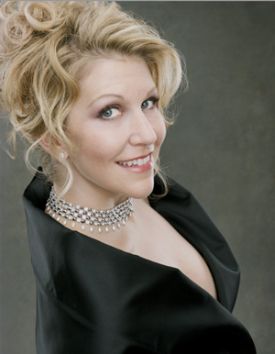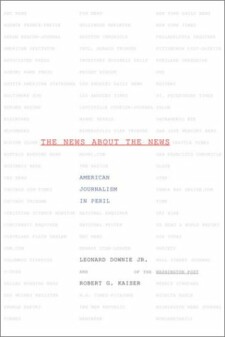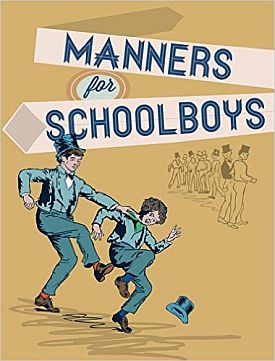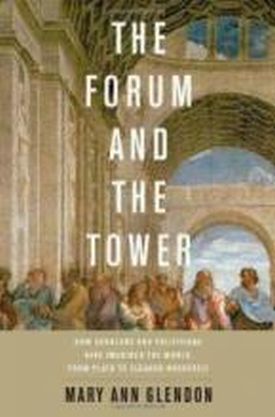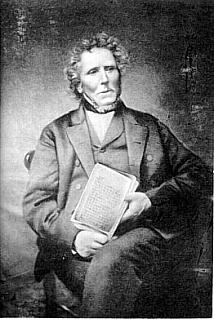What “Objectivity”?
From The New CriterionOutside the Capital Hilton on 16th Street in Washington one evening in May, you might have seen a demonstrator dressed like an old-fashioned carnival barker in a colorful vest and a straw boater. Around his neck he had hung a sign reading “DeLay is SCUM.” In a less politically polarized city, an observer might have thought that, even if the majority leader of the House of Representatives were guilty of everything being alleged against him, “scum” would not be quite the term that a rational person would use to describe him in a human environment that includes among its lower forms of life rapists and child-murderers. If Tom DeLay is scum, what is Saddam Hussein — one of whose political specialities was murdering children? But then there seems not to be a whole lot of overlap between those who think of Representative DeLay as scum and those who know or care about the crimes of Saddam Hussein. Politics in Washington these days exists in a hermetically sealed world of its own in which the rhetorical extremes are not only routinely resorted to but also bear little or no relation to anything outside it.
The extent of Tom DeLay’s misdeeds in allowing himself to come under the influence of monied interests might eventually prove to have reached farther than that of most members of Congress of both parties. As I write, his detractors are still having difficulty making this case, and even some from among the scandal-obsessed media are having to admit that DeLay is nearer to the middle of the congressional pack when it comes to accepting perks and favors than those with an interest in hounding him from office would admit. But you don’t have to make a case anymore before starting to delve into the dress-up chest for the carnival barker’s outfit and, with it, some of the more colorful epithets in the box of rhetorical excesses. I doubt whether even the demonstrator outside the Hilton that day would have said on sober reflection, assuming him to be capable of sober reflection, that he thought DeLay was in any genuine sense “scum.” Such intemperance was to him, presumably, just the language of “hardball” politics in our day and age, a notch or two farther up the rhetorical scale from Governor Howard Dean’s description of the President of the United States as “despicable” or Senator Harry Reid’s as a “loser.”
That last is particularly odd coming from the leader of a congressional party thrice defeated by the one headed by Mr Bush, but then no one expects such charges to bear any particular or readily discernible relation to reality. They are insulting just for the sake of being insulting, and the carnival barker would presumably expect Mr DeLay and his allies to refer to him as scum too, if they deigned to notice him at all. The fellow in the boater might not know or care about the fact that, if Tom DeLay were “scum,” so were most of the rest of our nation’s legislators, but it is hard to see how people who value civility and comity in public life could not care. The reason for the demonstration that evening was that inside the Hilton there was a dinner in support of Mr DeLay organized by the American Conservative Union — or as Mark Leibovich who covered the occasion for the Washington Post put it, a “Tom-apalooza” — at which “liberals and the news media served as the evening’s recurring boogeymen and foils, no surprise given that DeLay and his defenders have repeatedly blamed this unholy duo for the ethical issues that loom over him.”
I think we can guess from his phraseology what Mr Leibovich thinks of this attribution of blame, though of course what he meant to say was that the “unholy duo” were said to be responsible not for the “ethical issues” themselves but for making a political issue of those issues — which had, as it happened, issued from a series of investigations of some of Mr DeLay’s political associates in Texas. As the Washington Post was mentioned by name at the dinner as being one of the guilty parties, I think we can also understand the reason for the distortion as well as for the sneering tone of its correspondent’s report. Sharon Theimer of the Associated Press likewise described the attendees at the dinner as “an audience of conservative well-wishers who reject as politically motivated the ethics questions that have dogged him for months. She too seemed deliberately to miss the point that it is not the ethics questions themselves that are “politically motivated” — though of course some would say that they are too — but the use of such “questions” by the political opposition in an attempt to force so effective an enemy as Mr DeLay to quit the Republican leadership. What is the point of denying that it was politics which motivated such attempts? What else could be motivating them?
In the same way, back in the Clinton administration, no one supposed that the President’s dalliance with a White House intern had been engineered by his Republican opponents, but it was beyond a doubt, let alone a denial, that the Republicans were prepared to use that dalliance, and Clinton’s attempt to lie about it, for political purposes. Thirty years of scandal-mongering on the part of the media had taught the politicians themselves that the more formidable their political foes, the more necessary it was to try to dislodge them with allegations of criminal behavior. They have not forgotten the lesson since, and there can be no doubt that the case against DeLay, if there was one, was being most publicly and visibly made both by liberals, who hate DeLay as much as he and his Republican colleagues hated Clinton, and by the media for whom political hatreds and potential scandals are meat and drink. Not that either the media or the liberals would admit as much. Thus Howard Kurtz wrote in the Washington Post that “DeLay has delighted in blaming the ‘liberal media’ for his woes. But The Post and [New York] Times also led the investigative charge that prompted the resignation of two top Democrats, speaker Jim Wright and majority whip Tony Coelho, in 1989.”
Ah-ha! So it’s not just liberals, you see? But the media is both liberal and scandal-obsessed. Naturally they would prefer to find skeletons, or anything that can be sold as vaguely skeletal, in Republican closets, but if they find them in Democratic ones, that’s still a gain to those whose business is scandal-retailing. Argue if you like that it is quite right for them to exploit political hatreds and to pursue political scandals, that the duty both of the opposition party and of the media is to oppose those in government by any means necessary, but why pretend that the mention of such opposition by the friends of Tom DeLay is a dubious one? Does anyone seriously suppose that the liberals and the media are disinterested parties in the pursuit of the charges against Mr DeLay? As we have so often had occasion to notice in this space before, the media at least are compelled to keep up the transparent fiction of their own disinterest, of their Olympian perspective above quotidian political battles, because without it the justification for their privileged position in public life collapses.
In fact, it is already collapsing, which is why, around the same time that Tom DeLay was getting his testimonial in the Capital Hilton, The New York Times was publishing A Report to the Executive Editor on “Preserving Our Readers’ Trust.” It was a part of the elaborate charade of media self-regulation that is always particularly and ludicrously pompous when the Times takes part. According to Katharine Q. Seelye, writing the paper’s own account of the report, it had “recommended taking a variety of steps, including having senior editors write more regularly about the workings of the paper, tracking errors in a systematic way and responding more assertively to the paper’s critics.” Apparently there was no sense of contradiction on the part either of Miss Seelye or the Times between the objective of “preserving our readers’ trust” and “responding more assertively to the paper’s critics,” though surely on the face of it trust would seem to be more likely to be preserved if the paper adopted a stance of humility rather than assertiveness towards its critics.
At any rate, its assertiveness was much more evident in the report than its humility. One method of squashing the critics was suggested by Katharine Seelye’s mention of a Pew Research Center poll which “found that 45 percent of Americans believe little or nothing of what they read in their daily newspapers.” In other words, if trust in all newspapers is declining, there is no particular untrustworthiness to be attributed to The New York Times, especially as the survey was taken “during the contentious presidential campaign when the media itself was often at issue.” Indeed, “when specific newspapers were mentioned, The Times fared about average, with 21 percent of readers believing all or most of what they read in The Times and 14 percent believing almost nothing.” But such numbers only illustrate the worthlessness of polls on a subject like this. Asked if you believe (1) all or most, (2) some or (3) “almost nothing” of what you read in any newspaper, you would have to be a fool to answer anything but “some.” A fool or a strong partisan, that is. Though the Times may not like it or even know about it, it is its political orientation rather than its reliability that is being tested in such a poll. Both those who say they believe “all or most” and those who say they believe “almost nothing” are proclaiming a political position, either in favor of the Times’s brand of mainstream and slightly left-leaning liberalism or in opposition to it. If the pollsters did a follow up, they would find that 90 per cent of the first class are much further either to the right or left on the political spectrum while 90 per cent of the second tend to share the politics of the Times.
The report itself took a different tack in getting assertive with the paper’s critics by restating the terms of their criticism in such a way as to make answering them take place on their own terms and not those of the critics. Thus in the first paragraph of “Preserving Our Readers’ Trust” we read that Executive Editor Bill Keller, who appointed the committee, was “notably concerned about the din of outside criticism, about what seemed to be an unceasing drumfire from both left and right, amplified by the passions of the presidential election campaign and the wondrous reach of the Internet.” Doubtless he was “notably concerned” too, but not so much that he seems to have minded having his concerns put to rest by so venerable and useless a rhetorical device as the Goldilocks gambit. In that fairy tale, you may remember, Goldilocks sampled the Papa Bear’s porridge and found it too hot, the Mama Bear’s and found it too cold and the Baby Bear’s and found it just right. Since then she has become the paradigm for all “moderate” and “middle-of-the-road” journalists who defend their biases by claiming that their being criticized from both left and right is conclusive evidence that they are “just right” where they are, doing as they do and writing as they write.
Well, let us grant them the “drumfire from both left and right.” Let us even grant them the assumption that they are moderate and middle-of-the-road. It is, after all, a very wide road and there is a lot of room between, say, Maoist revolutionaries on the left and fascist reactionaries on the right. But that’s just the problem. Most of us are in the middle of the road. Most of us have critics on both left and right. The fact proves nothing in itself except that we are not ourselves of an extremist tendency — though it is sometimes difficult to remain clear-sighted about this, given the promiscuousness with which the term “extremist” — like “scum”, “despicable”, “loser” etc. — has lately been employed in our political dialogue. The point is not about the paper’s relative position on the left-right spectrum but that it writes its political views into its coverage of the news while pretending, in the name of “objectivity” and “professionalism” that it does no such thing. Looked at in this way, the criticism from both left and right ought to be taken as prima facie evidence of guilt rather than innocence. For although it would be pointless to criticize the Times for holding the political views it holds, it will obviously infuriate those who disagree with those views, whether from the left or the right, if it attempts to hold up the obvious falsehood that it has no political views at all in order to advance those views the cover of “objectivity.”
Another of the obsessions of the report is with the matter of anonymous sourcing. There are recommendations for cutting down on the numbers of anonymous sources and restricting the conditions on which anonymity is granted, but there is no mention anywhere of what, to a critic like me at least, is the chief objection to such sources, namely that they enable the paper to be used as a vehicle for score-settling or career advancement by unverifiable allegations on the part of those who have most to gain by the information — or alleged information — they are able to impart. Nor does such vicious and irresponsible employment of the media mouthpiece even depend on anonymity, as we saw in the case of John Bolton’s nomination as U.S. Ambassador to the United Nations. For weeks every political enemy the man had ever made — and he had made many — was allowed a public forum by the United States Senate and the media, each as clueless as the other, to make against him unsubtantiated charges, many of them of a personal nature, with impunity.
If the New York Times were really interested in preserving the public’s trust, or if there were anything left of the title it once was able to claim to an exalted place in the media world, it would seem to be a minimum requirement for the paper once again to show itself willing to set standards of behavior that other, less responsibly-minded members of the media might emulate. That trust and that prestige, when it existed, surely owed something if not everything to the sense people once had that the Times at least could be trusted not to stoop to the kind of sensationalism and character assassination that were rife in the Bolton case. But of course any attempt to return to those days would amount to commercial suicide. Even if the journalistic Times might wish to go back in time — and you’ve got to be a little skeptical about the sincerity of any such wish — the corporate Times could not stand for it. People have now grown so accustomed to being titillated by the prospect of scandal in public life that they would no longer put up with the sober discussions of policy that were once the Gray Lady’s journalistic staple.
Attracting public attention is the media’s business, their bread and butter, and if they are not restrained by their own sense of fairness and ethical self-restraint from winning an audience by giving publicity to sensational but unproven allegations against public officials, it’s hard to see what will restrain them. If the days of self-restraint and responsibility on the part of such prestige media operations as The New York Times are long gone, why should they wonder if trust has gone with them? Now, instead of setting a good example for the rest of the media, the Times is setting a bad example, not only for the down-market media brands but for politicians and others in public life as well. The only hope of escape from an endless round of scandal politics is that the politicians themselves will see how little it is in their interest to carry on the political dialogue with the media’s weapons of scandal and calumny, and so to show a firm hand and insist on the media’s respect for the propriety and confidentiality of their dealings with each other.
But instead the politicians have capitulated and themselves joined in wholeheartedly in the blood sport of scandal politics. Just look at the statement by the Senate Minority Leader, Harry Reid, on the Senate floor about one of Bush’s judicial nominees, Henry Saad: “He’s one of those nominees. All you need to do is have a member go upstairs and look at his confidential report from the FBI, and I think we would all agree there is a problem there.” Yet no one but poor Mr Saad’s little band of supporters thought to complain that such a stunningly irresponsible charge had been made in public, and by a United States Senator. Ironic, isn’t it, that it was not that kind of attack on a candidate for a federal judgeship but the majority’s attempt to put some kind of restraint upon others like it that became known in the press as “the nuclear option”?
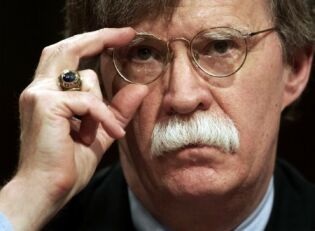 |
But that’s just the way the political game is played these days, and the fact that the media obviously have a pecuniary interest in playing it that way, in attracting the eyes and ears of a pruriently-inclined public by publishing as much private or confidential information as possible, is never mentioned as being of the slightest relevance. It is a fact as little noticed or remarked upon as the failure of either the minority members of the Senate Foreign Relations Committee or the media even to bother to try to conceal the political motivation behind the orchestrated attacks on John Bolton. That motivation was then made official by the Committee’s party-line vote on referring his nomination to the whole Senate. In any properly regulated political world, that vote would itself have been a shame and a scandal. “We 18 honorable United States senators,” they advertised themselves to the world, “hereby acknowledge that we choose to believe or not to believe a pack of scurrilous rumors about this man — see your local and highly-profitable scandal-sheets passim — on the basis of nothing but our opposition to or our support of the President and the party he represents.” If that’s not corruption to dwarf anything that Tom DeLay could conceivably be guilty of, it is only because we have grown so used to it in the decades that have elapsed since the Watergate break-in that we don’t even see it anymore.
Discover more from James Bowman
Subscribe to get the latest posts to your email.


